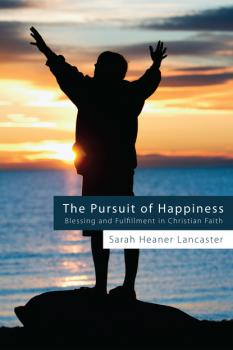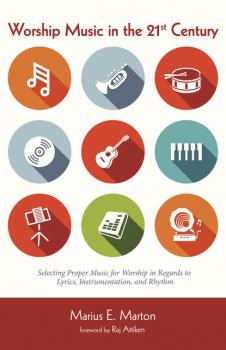ТОП просматриваемых книг сайта:
Словари
Различные книги в жанре Словари, доступные для чтения и скачиванияАннотация
Many Protestant Evangelicals struggle to find meaning in the Lord's Supper. There may be theological positions to be held and certain religious protocols to be observed, but for many the Eucharist remains merely a symbol of remembrance and as such, an elusive connection to the table of Jesus. As new conversations take place about the emerging and missional church, the value of the ancient practices of the church are seeking new expression. However, since many in these conversations come from non-sacramental backgrounds, the Eucharist can easily become a utilitarian addendum to alternative church experiments.
In reflecting on the invitation from Jesus, quoted by Paul in 1 Corinthians 11:23-26, to «do this,» the question is asked, «What is this?» Shadow Meal challenges the idea that this is something containable or negotiable and suggests instead that this has much more to do with the invitation and presence of Jesus than it does with ecclesiastical practices or prescribed rituals.
Shadow Meal seeks to offer Protestants some new images of the Eucharist and to foster a deeper appreciation of and connection to the presence of Jesus in the invitation to dine at his table. It offers new language to pastors and leaders who hope to find ways to frame the missional life of Christian faith for people whose lives cry out to be formed by the present reality of God's kingdom.
In reflecting on the invitation from Jesus, quoted by Paul in 1 Corinthians 11:23-26, to «do this,» the question is asked, «What is this?» Shadow Meal challenges the idea that this is something containable or negotiable and suggests instead that this has much more to do with the invitation and presence of Jesus than it does with ecclesiastical practices or prescribed rituals.
Shadow Meal seeks to offer Protestants some new images of the Eucharist and to foster a deeper appreciation of and connection to the presence of Jesus in the invitation to dine at his table. It offers new language to pastors and leaders who hope to find ways to frame the missional life of Christian faith for people whose lives cry out to be formed by the present reality of God's kingdom.
Аннотация
While justice is thought indispensible for a healthy society, its complex character gives rise to conflicting applications. Accordingly, The Enigma of Justice serves as an appropriate title. In greater detail, the course is set with a consideration of justice in context of the prophets. These were faced with the unenviable task of fine-tuning the monarchy to its covenant ideals. The topic is then treated in its classical setting, as one of the cardinal virtues. This introduces a series of competing theories, more or less compatible with one another. In still greater detail, the text treats a wide range of related topics, such as justice in conjunction with poverty, mercy, and freedom. In conclusion, it touches on justice from an international perspective.
Аннотация
Have you ever felt alone, facing the challenges life presents? Have you ever felt like you were parachuted onto an unpredictable path of leadership, with no road map? Then join us! Mirrored Reflections arose from the alienating experiences of a group of evangelical Christian women leaders known as AAWOL (Asian American Women On Leadership), who formed a community with the motto «Never Alone Again.» Reflecting on how the stories of select biblical characters mirror their own stories, AAWOL core sisters reframe these biblical stories through a Yinist lens and envision fresh, powerful leadership principles. Reflection questions at the end of each chapter guide readers to discover and articulate their own stories and imagine how their own parallel those of the biblical characters. Read and be nourished, finding mirrored reflections of your own broken or unvoiced story–both female and male–and enjoy the redemptive nature of the stories' multivocality.
Аннотация
A project of women's advancement in society and church life engages a multi-disciplinary and interdisciplinary approach in its quest for social transformation. In recent decades, governments, particularly in Africa, have employed various political, economic, and other social modi operandi in their attempt to advance women's participation more fully in society. The discussions on these pages seek to contribute to the women's discourse with insights from the theology and culture; more specifically, from name designation. The expression, what is in a name, falls flat on its face in most African cultures as well as the cultures that produced the Bible. In these traditions, a name is not merely a convenient collocation of sounds by which a person could be identified. Rather a name represents a story and can express something of the essence of that which is named. The power inherent in the way names are constructed and interpreted, both in terms of the Handmaid in the New Testament and more directly in the Igbo culture, contribute to the strengthening of patriarchy. Such construal potentially exclude women from full participation in social processes, and in so doing deprive society as a whole of the synergy of human potential. The discussion of Mary as Handmaid centers on the role of women in Catholic theology, so she becomes the vehicle for examining the role of the second-class citizen assigned to women in the Church, then and now. Drawing from textual and oral history, the book reinterprets in a liberative manner female names both from Igbo tradition as well as Chinua Achebe's Anthills of the Savannah. Thus the freight that a name designation carries makes imperative the exploration of its redemptive significance.
Аннотация
In order to discover inner peace and peace in our world, we will need to let go of traditional understandings of pain and suffering as God's will. We will need to stop claiming that Christianity contains elite, exclusive truths. We learn here from the Jesus of the Gospel of Mark how to open our eyes and awaken to the Presence of God here and now. Gail Stearns brings insight from biblical scholars, spiritual leaders, and her own experience as a pastor and university teacher, to move us to a place where we can dwell more deeply in the present and live in a more compassionate world.
Аннотация
Just as the commercial market is full of lofty promises and glossed over particulars, so it is with the marketplace of ideas. Too often the church itself resorts to catchphrases and slogans, to elementary truths over spiritually mature ones, to rhetoric over reason, and concise responses instead of complete answers. The danger of this is that the church may become nothing more than a peddler of platitudes and its followers may become disillusioned. This book aims to help uncover the real deal behind common Christian bywords, and the real truth underlining prevalent Christian truisms, in the hope that we might know God better, and discover the richness and fullness that is in Christianity.
Аннотация
People want to be happy. Nothing could be more obvious, and yet this common and evident goal is not as easy to achieve as it is to desire. The Christian tradition has understood happiness to be gained through relationship with God, and it has much to say about what will make us truly happy and what will not. This book examines happiness from a Christian perspective, using John Wesley as the focus of study because he understood happiness with God to be the very goal of Christian life. He also understood that Christian happiness needed to acknowledge the difficulties of life. This book seeks to learn from the wisdom of the past in order to imagine how Christians today might talk about happiness in a way that is faithful to the tradition and engages the world as well.
Аннотация
This book was born out of necessity and desire of the author to learn about proper church music in regards to melody, harmony, lyrics, instrumentation, and rhythm.
The necessity is for clearer guidelines for pastors and musicians since there are many debates and divisions over worship music.
The author desired a deeper understanding since he is a professional musician who was criticized for his choice of instruments, style, and genre.
This book informs the reader of the musicological and theological aspect of worship music. It examines and explains the role of electric instruments and drums in 21st century worship. It helps music leaders make better decisions when it comes to building a church band and selecting proper music. This book also helps answering some myths people have about instrumentation, style, rhythm, lyrics and harmony in respect to theology, culture, and musicology vs. personal preference.
This book will encourage today's musicians to explore, invent, develop, and enrich worship with their music. It will also help mend the gap between generations in regards to change, as good Christians will realize that drums were not invented by the devil and, if rightly used, could be a wonderful addition to the church band.
The necessity is for clearer guidelines for pastors and musicians since there are many debates and divisions over worship music.
The author desired a deeper understanding since he is a professional musician who was criticized for his choice of instruments, style, and genre.
This book informs the reader of the musicological and theological aspect of worship music. It examines and explains the role of electric instruments and drums in 21st century worship. It helps music leaders make better decisions when it comes to building a church band and selecting proper music. This book also helps answering some myths people have about instrumentation, style, rhythm, lyrics and harmony in respect to theology, culture, and musicology vs. personal preference.
This book will encourage today's musicians to explore, invent, develop, and enrich worship with their music. It will also help mend the gap between generations in regards to change, as good Christians will realize that drums were not invented by the devil and, if rightly used, could be a wonderful addition to the church band.
Аннотация
Baptism may be more important than you think. Virtually every Christian tradition practices baptism, but with diverse understandings of its form and meaning. Baptists (and similar traditions) have emphasized the restriction of baptism to confessing believers and immersion as the mode, and they have usually interpreted baptism as a post-conversion act of human obedience, rather than a sacramental means of grace. In this book, a Baptist theologian calls for a reformation of Baptist thought and practice, arguing that a biblical theology of baptism interprets baptism as a sacramental seal of conversion. The book develops the biblical case for this perspective and answers questions about its practical implications.
Аннотация
Dietrich Bonhoeffer is a celebrated and enigmatic figure in theology. Though he is known for advocating a concrete and worldly Christianity, Justin Mandela Roberts argues that his theology is in continuity with a participatory ontology, especially as seen in the ressourcement movement and Radical Orthodoxy. While critical of such «metaphysical speculation,» Bonhoeffer displays similar inclinations that situate Truth, Goodness, and Beauty as transcendental aspects of divine being. His theology affirms the pervasive «rhetoric» of doxology, details the economy of reciprocal gift-giving, and celebrates the sacramentality of creation. Sacred Rhetoric contributes to the ongoing discussion of metaphysics, and also serves as a supplement to the debate between Karl Barth and Erich Przywara.










